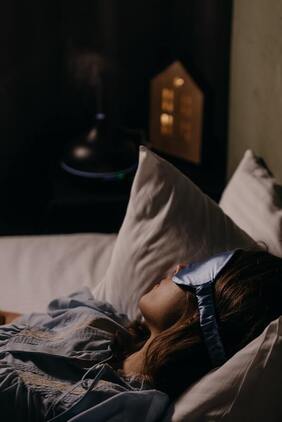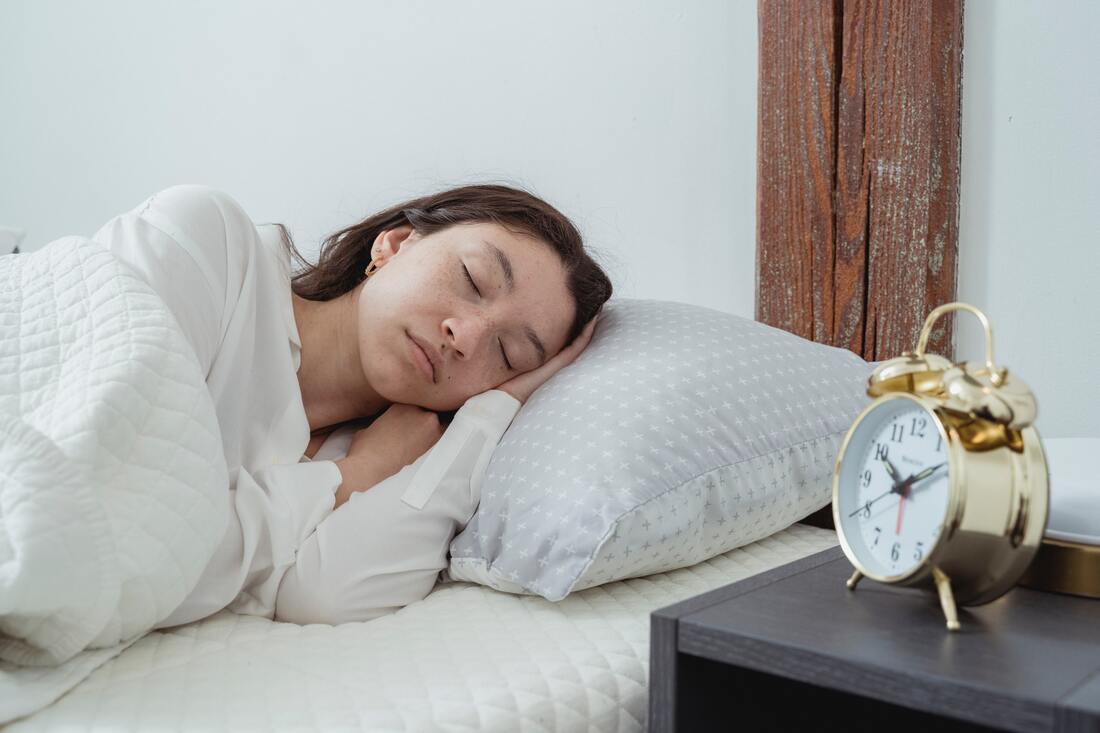|
At Living Touch Massage, we know the importance of a healthy routine. Jogging and power walking are fantastic ways to get your heart rate up and burn calories, but it's crucial to prioritize proper form to avoid injury. Here are some extended tips to keep your body aligned while you hit the pavement: Sole Support: Invest in the Right Shoes
Running and walking both put stress on your feet and ankles, which can travel up your legs and cause lower back pain. Fight back by wearing shoes specifically designed for your chosen activity. Don't skimp! Change your shoes regularly, typically every 300-500 miles for running shoes and every year for walking shoes. Consider having a separate pair specifically for your workouts. Proper footwear provides cushioning, arch support, and stability specific to the demands of jogging or power walking. Uneven Terrain? Be Mindful of the Grade When you're out jogging or power walking, pay attention to the incline of the road. It's easy to overlook, but even a slight crest can have consequences. As you walk or run on an uneven surface, one leg is often lower than the other. This can lead to imbalances in your hips, knees, and even your neck over time. To avoid these issues, prioritize flat paths whenever possible. If you must walk on an incline, try to alternate directions on your route so that each leg gets equal work on the incline and decline. Level Up Your Walk: Seek Flat Surfaces While nature trails might seem like a scenic alternative to sidewalks, they often come with uneven terrain. This can be a nice occasional change of pace, but for consistent exercise, it's generally better to stick to level surfaces like sidewalks or tracks. This will help you maintain proper form and reduce the risk of developing pain in your back, hips, and knees. Listen to Your Body: Warm Up, Cool Down, and Stretch Just like any workout, proper warm-up and cool-down are essential for jogging and power walking. Dynamic stretches like leg swings, arm circles, and lunges will prepare your muscles for movement and help prevent injuries. After your workout, dedicate time to static stretches that hold each pose for 20-30 seconds to improve flexibility and reduce muscle soreness. Form Matters: Maintain Proper Posture While you're out there, focus on maintaining good posture. Here's the key:
Don't underestimate the importance of staying hydrated! Drink plenty of water before, during, and after your workout. You may also want to consider a sports drink for longer walks or jogs, especially in hot weather. Additionally, fuel your body with a healthy snack beforehand and replenish your energy stores with a balanced meal afterward. Living Touch Massage: Here to Help You Keep Moving Whether you're a seasoned jogger or a power walking newbie, prioritizing proper form is key to preventing injuries. By following these tips and listening to your body, you can keep your walks and jogs enjoyable and pain-free. And if you do experience any discomfort, Living Touch Massage os here to help. We can provide targeted relief, identify areas of tightness that may be contributing to pain, and offer advice on how to prevent future issues. Let's keep you moving comfortably! If you are a working person in 2023, you know that productivity is king in many facets of life. Your boss expects increases in productivity, and often we project high productivity within our personal lives when it comes to maintaining our social life, homes, families, etc. With all of the demands of everyday life, a person can begin to feel overwhelmed, and burnout can occure. The solution to this is very simple, but for many, it doesn’t seem possible. That solution is rest. While the question of productivity vs rest came to light during the madness of 2020, it has been something bubbling up for a couple decades now. It’s almost become a question of “does taking time to rest make you a lazy person?” Our answer is no. You are a living breathing entity. Our bodies are not made to be worked to the bone day in and day out. It’s essential for not only our physical health, but our mental health, to be able to sit back and rest. Rest your body. Rest your mind. You are not a robot.  Why has rest become seen as a sign of weakness or laziness? We live in a productivity obsessed culture. Taking breaks can make one feel lazy or immoral because that is valuable time that we could be dedicating to output. In fact, most people directly link their output or productivity to their worth as a person. If you think about a day where you have nailed a presentation, closed a big deal, or made a really good proposal, you feel like you’re on top of the world. You have that sense that you’re a person of value, and worthy of your keep. On the other hand, days when you feel sluggish, your output may not be as high, and you can start to wonder why your boss keeps you around or that you’re just not good at whatever it is you do. So you end up pushing through those days to reinforce that you are valuable. This can become a toxic cycle if gone unchecked, and can lead to a decline, not of quantity, but the quality of your work. Your brain is a muscle
If you’ve ever been to the gym, you know that between each workout, and even between each set within a workout, you need to plan time to rest that targeted muscle group. Biologically, it is essential to get the results you want. If you don’t take these breaks, your muscles deplete and you can’t eek out another rep. Your brain is no different. When you mentally extend yourself, your brain begins to slow down, and doesn’t make connections as easily as when it is “working fresh”. At this point, your work or your relationships begin to suffer. Just because you're producing, doesn’t mean you’re fully present, and it doesn’t mean what you’re producing is at a standard that is worthwhile. Rest is essential to your brain so it can function properly. It’s time to reframe the need for rest. It is not taking away productivity. It is enhancing your productivity! Whether your version of rest is a nap, a walk, taking a bath, reading a book or our personal favorite, Getting a massage; they are all in service to improved health, creativity and productivity. After all, even God took a day to rest! As the leaves will soon begin to change and we enter a new season, it is a great time to sit back and reflect on where we are in life. If the summer I’ve experienced is any indication of positive changes, my reflections will be amazing.
For those of you who haven’t met Dave yet, allow me to gush about my new husband just a little bit! As I mentioned, he has been working for Sanford Medical for 22 years, currently in the Sanford Hospital Cardiac Care Unit. In addition to his full-time position, he is attending Northwest Technical College to earn his diploma in HVAC/plumbing . Quite active, Dave enjoys all sorts of outdoor activities: hunting, fishing, hiking, kayaking, skiing, biking. He truly has a zest for life that is just contagious! We laugh a LOT when we’re together, and it’s been a joy to find a kindred spirit where we both really enjoy each other’s company, a very important building block to a successful marriage!
Looking towards the future, we continue to grow and not just by the size of our family! As I mentioned, Dave is going to school for HVAC/plumbing, but I have also been furthering my own education! I have always been a lifelong learner, and value education and the positive changes it can bring. I have been pursuing a degree in Biomedical Engineering. Don’t worry, this does not mean I am moving on from Living Touch Massage! The knowledge and experience I have gained over the years as a bodyworker has inspired me to find additional avenues to help people. As I merge into these new stages of life, my passion to work with people and their wellness will continue to be my focus and delight. Massage will always be part of my inspiration and a core value. As we grow and adjust to the changes throughout life, for me, massage will always be a part of who I am.
A restful night's sleep is often something that can be elusive for many of us. Between 10% and 30% of adults struggle with chronic insomnia. It is believed between 30% and 48% of older adults experience insomnia. Many people simply acclimate to their situation, and live life constantly tired. While this may work for them, we don’t recommend it. Being well rested shouldn’t be unattainable for anyone. We’ve put together a list of some recommendations that we hope will help you get the rest you need so you may live a full, happy, WELL RESTED life!  Put yourself on a sleep schedule This one seems obvious, but is it something you’ve tried? If so, do you close your eyes once you’re in bed, or do you find yourself scrolling social media? I think that most parents, especially those with babies or young children, would agree that getting their children on a sleep schedule makes their lives easier. Not only does it help mom and dad get into a routine for themselves to accomplish their parental duties, it is vital if you want to curb those sleepy eyed temper tantrums from the little ones. Implementing a sleep schedule for yourself is doing the same thing, although we hope you’ve learned to manage your emotions a tad more than a toddler! Even so, adults can also get very cranky and short with others when not rested. Seven hours is the recommended amount of sleep for a healthy adult. Most people don’t need more than eight hours to be well rested. If you can, go to bed and get up at the same time every day, even weekends to reinforce your body’s sleep-wake cycle. If you find yourself not falling asleep within 20 minutes, get up and do something relaxing. Pick up a book, and read a chapter. Listen to some calming music. Anything to help lull you into a sleepy state, and go back to bed. Repeat as needed, but maintain the sleep/wake up schedule you’ve set for yourself. Pro tip: Cut off all electronic stimulation a half hour before your bedtime. Monitor what you’re consuming throughout the day Discomfort from either eating too much OR not having eaten enough could be keeping you awake. Caffeine, alcohol, and even nicotine can also be major factors too. Stimulants can take hours to wear off, and are likely hindering your sleep, and while alcohol can make you sleepy at first, but when it metabolizes while you’re asleep it can wake you up. Everyone’s experience will be different based on your history, but pay attention to your body, and make adjustments to see if they have any impact. Your bedroom. Is it set up for rest? The space where we sleep has a huge impact on how we sleep. Is your bedroom set up to be a place of rest, or is it chaotic? An ideal set up for your bedroom is dark, quiet, and cool. Any light, or noises (except for white noise) can really mess with your ability to sleep. Our body temperatures naturally drop during sleep. A cooler room will assist in getting you to sleep, and more importantly, STAYING asleep. Light also has the same effect, especially if you’re not a heavy sleeper. Black out curtains can help eliminate as much light as possible. The condition you keep your room in is key as well. We’re not saying that it needs to be completely sterile, with everything in its place. We know that’s not realistic for everyone. However, it is hard to be restful surrounded by chaos. Tidy up your room and give it a try! Make time for physical activity every day If you have a job at a desk, or something that doesn’t require much physical exertion, you’re probably mentally tired by the time you get home, but not physically tired. It’s important to get your body moving. Sleep is meant to repair our bodies, however, if your body doesn’t need to be repaired from lack of activity, it might be cheating you out of valuable sleep time! Try getting outside for a little while each day to move your body. It doesn’t have to be major. A half hour in the garden, maybe an hour long walk. Something to trick your body into being physically tired is what you’re looking for. Are you a bedtime worrier? If you’re like me, bedtime is when you tend to reflect on the day you just had, and start thinking about the day ahead. If your daily life is busy, you probably find yourself already worrying about tomorrow, and making a to-do list in your head while you're laying down waiting to go to sleep. In my experience, those thoughts can swirl around inside your head for hours on end. Work on those worries and concerns before bed. Keep a notepad and pen on your nightstand. Get them out of your head and onto paper so those thoughts are waiting for you when you wake up, but aren’t swirling around in your head while you try to fall asleep! You may need some deeper stress management work as well. Start with the basics, such as getting organized, setting priorities and delegating tasks. Meditation also can ease anxiety. A worried mind is hard to get to rest. Instead of kicking the can of stress down the road for tomorrow, do yourself a favor and deal with it today. Closing thoughts As you can see, there are a variety of reasons that can be preventing you from getting the sleep you need and deserve! Try out a few of our suggestions to see if they could help you out! Just remember that your sleep habits are ingrained within your body, and whatever you try, give it a reasonable amount of time before trying the next thing. Until our next blog, Take Care! Mental self-care relates to any activities or routines that can help individuals maintain good mental health and support their well-being. Like any form of self-care, this can take shape in a variety of ways. Some types of mental self-care include mindfulness, self-reflection, setting boundaries, seeking support, engaging in hobbies and interests, getting enough sleep, and practicing self-care rituals routinely. Mindfulness:
Mindfulness is paying attention to the present moment with curiosity and without judgment. It can help promote mental self-care through reduced stress, improved concentration, increased self-awareness, and enhanced emotional regulation. Mindfulness practice can promote overall well-being by increasing positive emotions, such as happiness and gratitude. It can also aid in developing self-compassion by helping create a kind and non-judgmental attitude towards yourself. Overall, mindfulness practice can help to develop a greater sense of self-awareness and self-compassion, reduce stress and anxiety, and improve overall mental well-being. As humans, we are wired to crave connection, to create deep lasting bonds; be that with a social circle, or just a social life in general. It is important to keep people around us as a support group or network. It’s part of how we develop as humans, and a tool we can use to manage our mental health state.
When was the last time you nurtured your spirit? We tend to focus a great deal of our energy and time nurturing the physical body through diet and exercise, but our spiritual health is often forgotten, ignored, or pushed to the back of our minds when we need to focus on something else. What Is Spiritual Self-Care?
Spirituality has different meanings for everybody, usually influenced by the ideologies you grew up with. Many associate spirituality with religion or cultural traditions. Observing rituals, attending religious services or ceremonies, and studying religious texts are types of spiritual self-care for billions of people around the world. For others, the concept of spirituality is experienced in nature, in personal relationships, or within oneself. It could be through art, music, and dance; anything that is meaningful and kindles a sense of sacredness, even if only felt by the individual. Spirituality is a personal practice. No matter what path is chosen, they all converge upon something you desire on some level—the need for connection, purpose, and happiness. |
Categories
All
Archives
June 2024
|
Massage News - Articles of Interest
|
|
Recent Testimonials
"After a car accident a few years ago I have had problems with my shoulder. Rita helped me with the pain when doctors couldn't."
- Jo A. "I have suffered from chronic headaches and several back injuries for years. Regular massage has helped me to increase my flexibility and reduce muscular tension."
- Sheila P. |
About Us
We are a family-owned and operated company, serving the Bemidji area since 2004. Rita Scholl Bergstrom has over 25 years' experience as a massage and bodywork practitioner. |
2024 Copyright © Living Touch Massage. All Rights Reserved.
Site powered by Superior Effect Marketing











